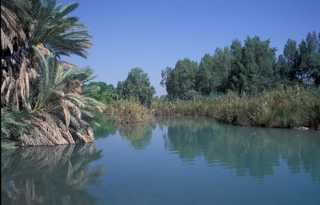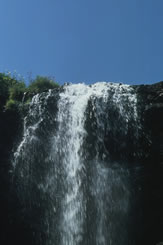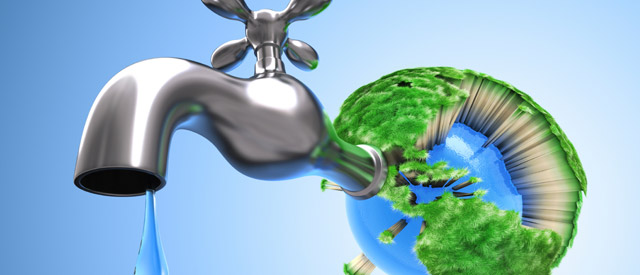 Egypt: 40 per cent drink unsafe water
Egypt: 40 per cent drink unsafe water
The lack of clean water is one of Egypt’s most urgent problems, a Dutch newspaper reports. Corruption, pollution and wastage are to blame, it says.
When the inhabitants of the small town of Al-Barada (pop. 50,000) in Qalyubia Governorate, north of Cairo, finally got piped drinking water two months ago, it was cause for celebration. Until they discovered that sewage was polluting the water and a thousand people contracted typhoid.
Now Al-Barada again must rely on water tankers. According to lawyer Gamal Yehi, who is representing the interests of the inhabitants, what has happened is a typical result of the corruption that is endemic in the whole of Egypt. Good plans are poorly implemented with inferior materials by unreliable contractors and an incompetent government.
Al-Barada’s groundwater is polluted because the drains, which are supposed to transport wastewater to the river Nile, are blocked with waste.
Every year 550 million cubic metres (m³) of industrial wastewater, 2.5 billion m³ of agricultural wastewater and an unknown amount of sewage flow into the Nile.
Nearly 40 per cent of Egyptians has unsafe water. As a direct result, 17,000 children die every year from diarrhoea and kidney failure rates are among the highest in the world.
At 900 m³ per capita per year, Egypt is below the water poverty line of 1,000 m³ per capita year. And, according to World Bank findings, that figure is expected to fall to “670 cubic metres by 2017 unless policies are implemented to sustainably manage growing demand.”
Egypt’s dependence on the Nile has often lead to tensions with its downstream neighbours. In 1999, the ‘Nile Basin Initiative’ was established among the Nile riparian states to promote cooperative development of the river. Negotiations remain difficult and have recently been stalled for 6 months.
Despite the water crisis, Egyptians continue to waste water. According to the World Bank this is because water tariffs are too low. UN-appointed expert Catarina de Albuquerque reported that the “tariff for drinking water in Egypt is considered one of the lowest tariffs in the world, with over 92 percent of households spending less than 1 percent of their household budget on water and sanitation”.
Inefficient irrigation systems are the reason why most water, 85 per cent, is used by the agricultural sector. Still this is not enough as unequal distribution forces many farmers to use untreated wastewater to grow their crops. In the beginning of August 2009, the minister of Agriculture announced that all fruit and vegetables irrigated with sewage have to be destroyed.
| Contact information |
Alexander Weissink, NRC Handelsblad [in Dutch, subscriber-only access]
|
|---|---|
| News type | Inbrief |
| File link |
http://www.nilebasin.org/ |
| Source of information | Alexander Weissink, NRC Handelsblad [in Dutch, subscriber-only access] |
| Subject(s) | DRINKING WATER , DRINKING WATER AND SANITATION : COMMON PROCESSES OF PURIFICATION AND TREATMENT , POLICY-WATER POLICY AND WATER MANAGEMENT , WATER QUALITY |
| Relation | http://www.semide.net/countries/fol749974/country769281 |
| Geographical coverage | Egypt |
| News date | 17/08/2009 |
| Working language(s) | ENGLISH |
 you are not logged in
you are not logged in





